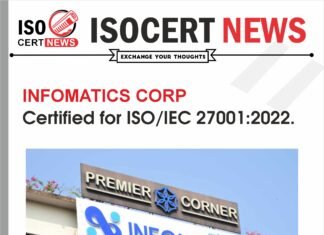The Covid Pandemic has affected businesses and sectors in varying degrees. The organizations have expected workers, customers, and contractors’ users secured and healthy. The necessities for operating and maintaining a health and safety management system have stayed unaltered and have arguably come even more to the forefront of compelling business management.
The remote Environment and new risks associated with the coronavirus pandemic have made the environment much different than it was before covid.
- KEY AUDIT TAKEAWAYS DURING COVID-19
- Operational Changes and the new risks associated with Coronavirus Pandemic have made the t environment entirely different than it was long before covid.
- George Botic, director of the PCAOB;s Division of Registrations and Inspections has provided observations on the new environment Wednesday during the AICPA Conference.
- He tended to review best audit pratices and repeating insufficiencies distinguished in PCAOB assessments , updates connected with the pandemic and different issues worldwide.
- Many Organizations have modified their internal monitoring projects to target explicit commitment in small business bound to be impacted by COVID.
- The remote environment brought about big changes in inventory observations, with mobile devices and applications used in the process.
AUDITING THROUGH THE PANDEMIC
Going Digital in the pandemic is a necessity as physical distance and remote work have become the norm. The future of audits is not just on remote mode, it’s about transforming underlying processes to achieve three objectives – a higher quality, more efficiency, and better business insights. Covid -19, constrained changed in a matter of days. The government took flexibility of deadlines at the start of the pandemic, for progressing quarterly and yearly.
Covid unexpectedly constrained change, very quickly. The standards have not changed yet the pandemic brought new dangers. Before the pandemic, many bigger firms were well in progress in digitizing their documents, yet the pandemic constrained everybody to move to a better approach for conducting audits. The pandemic constrained change due to legitimate need there was no ideal opportunity to debate. The customary obstructions for evaluator admittance to information- client resistance and client readiness were quickly overcome and the technology was put to the test. What is more, it worked and it showed us the method of things to come: clients can see real-time insights as to the industry moves toward the goal of continuous auditing.
DIFFERENT WAYS IN WHICH TECHNOLOGY IS TRANSFORMING AUDITS
Auditing has customarily been a process based on statistical sampling techniques.
Permitting the machine technology to perform scheduled, rule-based undertakings results in a more effective and efficient audit.
Over the past two years, KPMG has been dealing with risk assessment tools that layer-based learning – which is a subset of artificial intelligence. The power of AI picks up patterns or designs that individuals might miss or haven’t seen previously.
The future of auditing will involve real-time auditing, in which clients record transactions on a blockchain, and the auditor is alarmed assuming that there are any surprising interactions. – for on-the-spot auditing.
ISO 45001 CERTIFICATION AUDIT IN NIGERIA
ISO 45001 is a standard published by the International Organization for Standardization (ISO) for the implementation of health and safety management systems. This Standard helps you in identifying risks and planning actions. By having ISO 45001, you can have a competitive edge over others and it makes sure that well being of your work environment is your priority.










